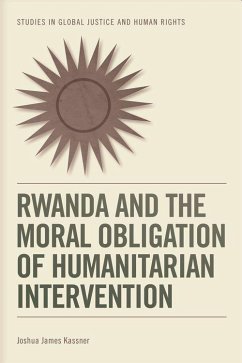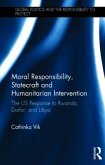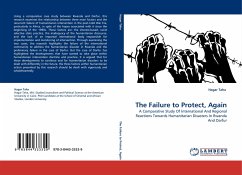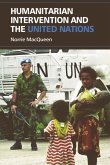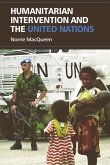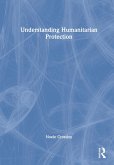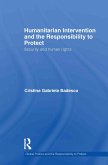STUDIES IN GLOBAL JUSTICE AND HUMAN RIGHTS Series Editor: Thom Brooks This series publishes ground-breaking work on key topics in the area of global justice and human rights including democracy, gender, poverty, the environment, and just war. Books in the series are of broad interest to theorists working in politics, international relations, philosophy, and related disciplines. 'The horrific moral failure of the world community during the Rwanda tragedy raises some of the most troubling dilemmas about humanitarian military intervention. Joshua Kassner's book responds to these quandaries with admirable clarity and impressive depth. This is a powerful book on the vexing questions of human wrongs and global responsibilities in our fast emerging globalized world.' Deen Chattterjee, Senior Advisor and Professorial Fellow, S. J. Quinney College of Law, University of Utah, and Global Ethics Fellow, Carnegie Council for Ethics in International Affairs, New York City Challenges traditional views of the morality of humanitarian intervention and global justice In 1994 approximately 800,000 men, women, and children were slaughtered because they were Tutsi or Tutsi-sympathizers. The tragedy of the Rwandan genocide has caused many to question the international community's choice not to intervene. Here it is argued that not only is an obligation of humanitarian intervention possible, the international community was obligated to intervene in Rwanda. The discussion has significant implications for how we ought to think about the foundational principles and institutional structures governing international relations - eventually leading to the call for significant reform of the normative framework governing international relations. Key Features * Takes an interdisciplinary approach to an issue of tremendous moral and political importance * Offers a compelling argument grounded in basic rights that challenges the accepted view on the moral nature of humanitarian intervention * Explains why the international community should have intervened in Rwanda Joshua James Kassner is an Assistant Professor of Philosophy at the University of Baltimore. He has published on global justice and international political theory.
